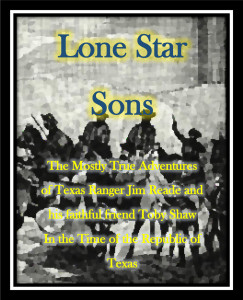 (This is the final part of this adventure – Part One is here, Part Two here and Part Three here. The entire adventure will be added to a separate page for it – and with one more adventure, I believe there will be sufficient for a nice-sized book. Which may be the first of several – depending on the response of readers to this venture into classic Western adventure seen through a new paradigm.)
(This is the final part of this adventure – Part One is here, Part Two here and Part Three here. The entire adventure will be added to a separate page for it – and with one more adventure, I believe there will be sufficient for a nice-sized book. Which may be the first of several – depending on the response of readers to this venture into classic Western adventure seen through a new paradigm.)
Jim milked the nanny goat one last time, while Albert Biddle and Toby carried the body of the woman to the hut, and placed it side by side with that of Armando the goatherd. The poles upholding the roof of the hut, and the roof itself all came down with very little effort, making the proper appearance of a grave. Albert suffered a fit of sneezing in the cloud of dust which rose up briefly. They watered the horses one last time, ensured that every canteen was filled to the brim, and Toby laced small James Albert Toby into the makeshift cradle-board with narrow strips of blanket. Into the cradleboard with the baby went several handfuls of wool from the eviscerated pillow. When he had finished, Toby looked upon his handiwork with satisfaction. The baby blinked back at him, seemingly comfortable in his wicker and wool swaddling, with only his tiny red face visible. Albert Biddle grinned.
“I must say, Mr. Shaw – this infant a portmanteau of yours is remarkable for simplicity and ease of transport – just hang it on our saddle-horns like a holster. And the little one seems perfectly content. I think that I should make a sketch of your contrivance, and take it back East with me. It might start a new fashion for those ladies with large families.”
“We should take turns,” Jim suggested. He settled himself into the saddle with a soft groan. He ached with exhaustion, knowing that the day’s journey was not yet over. He squinted at the sun, now sliding imperceptibly towards the far horizon. Two days travel to the Rio Grande – the first water they would see after leaving this place. “And we’d best get a move on,” he added. “We’ll make a dry camp of it … it may be best to keep moving. The moon is near enough to full to make no difference if it’s day or night.”
“If you say so,” Albert Biddle agreed, and Toby consented with a brief nod. Jim could tell that his friends were as tired as he was – but fulfilling their promise to Armando’s wife, and getting their tiny son to Laredo, to the house of Graciela on the plaza by the church of San Augustin – that took every precedent.
Their horses plodded on, Jim in a weary daze which was only half the blink of an eye towards falling asleep. Some of Jack’s other Rangers could sleep in the saddle, which he had never thought possible until now. To his vague astonishment, James Albert Toby appeared to find the gentle sway of the cradle-board hanging from Toby’s saddle equally as soporific, for the infant was silent as they rode. The sun, after seeming to hang in the sky for hours at an angle intended to shine directly into their eyes, eventually set. They rode on, through the thickening twilight.
Albert Biddle spoke, his voice suddenly loud after the long silence. “I think we should rest now – give the child some more milk, and sleep until moonrise.”
In spite of the urgency of getting to Laredo, Jim found himself agreeing completely. There was just light enough remaining in the sky for them to find a sheltered place; a shallow dry arroyo with a small sapling overhanging a narrow and sandy sward refreshingly free from any prickly weeds, cactus thorns or evidence of ant-mounds. Indeed, the sand looked to be as inviting as a warm featherbed to Jim’s exhausted gaze.
They left their horses saddled, tying the reins to the spindly tree. Toby simply cast himself down on the sand, curling up like a cat – and like a cat, falling instantly to sleep. Little James Albert Toby fussed, in a half-hearted fashion, until Albert Biddle filled the kid-glove with luke-warm goat milk and let the baby suckle on it for a few minutes. Both Albert and the baby fell asleep after some five minutes of this exercise. Jim – as the captain of this little party, as he saw it – removed the flaccid, milk-sodden glove from Albert Biddle’s grasp. He hung the cradle-board with the slumbering infant in it from the lowest branch of the tree, where it rocked in the slight breeze and the tug of their horses’ reins, as their mounts cropped at the few blades of green grass and leaves within reach. Jim lay himself down on the sand, taking care before he did so to hollow out a small declivity for his hips and shoulders. That, so he had been told by Jack, and before that by Dan’l, was the trick for sleeping comfortably on the ground, if simple bone-exhaustion didn’t do the trick.
To Jim’s mixed discomfiture and relief, all of them – even the baby and the horses – slept until well-past moon-rise. It was, in fact, the hour before sunrise, when the sky in the east turned the pale of an oyster-shell, when he woke. Toby sat, cross-legged in his customary posture on the bank above their heads – obviously as a belated sentry. Albert Biddle had the cradle-board in his lap, appearing to have finished a round of feeding, for the infant seemed well-content, blinking sleepily at no one in particular.
“You should have wakened me, Brother,” Jim said, while Toby shrugged. “It was of no matter.”
Albert Biddle observed, “We have about half the goat-milk left; enough for another day, a day and a half at most.”
“Then we had best better move on,” Jim answered, and Alfred Biddle laughed, as he handed over the cradle-board to him.
“Agreed – and it is your turn to play nursemaid.”
“The responsibility of command,” Jim observed with a sigh. They set off in the chill grey morning, wisps of vapor rising from the low places along the trail where the nightly dew had settled overnight. The sun rose at their backs, sending pale gold fingers of light reaching here and there, slipping between the sparse trees and the tops of the sand hills, and sending their elongated shadows ahead. The cradle-board hung from the short length of rope looped over Jim’s saddle-horn, and now and again bumped against his knee. Such did not seem to disturb the tiny passenger, Jim noted with relief. As for himself, the brief halt did not seem to have rested him very much – Jim felt only a little less weary than he had the night before. No, Laredo would be a welcome sight, all the crumbling adobe walls and rust-red roof-tiles of it, punctuated with the tower of the church of San Augustin and the sere and sage-green line of brush and trees which marked the line of the river.
A half-length ahead of him on the trail, Toby suddenly drew rein – so suddenly that Jim’s paint-pony nearly rammed into Toby’s own horse.
“Someone is coming,” Toby whispered. “Down the trail, towards us, from the other side of that rise.”
“How many?” Jim woke from the half-stupor of exhaustion, alert in every fiber. This path they followed was an unfrequented one, because of the rough land and the lack of water.
“I do not know, James – more than one, but not many.” Toby answered. The back of Jim’s neck prickled; no, thinking of the murdered goatherd Armando and the looting of his tiny hut did not give cause for comfortable reassurance. Jim loosened the revolving pistol in its holster at his waist. Since leaving the spring he had kept it loaded and ready at hand.
“Trouble?” Albert Biddle ventured, soft-voiced and low, as he drew his horse level with Jim.
“Don’t know – but be wary,” Jim replied. “Let’s pick up the pace, gentlemen – and surprise them.” In obedience, Toby heeled his own horse to a slow trot; Jim and Albert Biddle followed – Jim only realizing at the last second that the increased pace might jostle the cradle-board. Within a few lengths, they topped the gentle rise and had a momentary advantage.
Which was a good thing, as Jim saw in that first tense moment, for they had surprised the two men on the other side; men who had no good reason for having their own weapons in hand – two men of light complexion but dressed in rough Mexican style and with the dust of the trail on their clothes and hair. The man in the lead seemed familiar, and shock and rage lit a fire in Jim’s blood as he recognized him. He knew that profile, the uncut reddish hair, the ragged beard – the last face that he recalled before waking in a shallow cave after an explosion of darkness.
“Gallatin!” he shouted. “You cur!” Cold and unthinking rage swept through Jim. All thought of his intent to arrest the renegade Ranger, bring him to Bexar to face chargers of murder – went from his mind in an instant. From that moment, things seemed to happen at once, and yet slowly, every motion etched in his mind as if it were a pantomime. Just as Gallatin lowered his own pistol – a heavy old-fashioned flintlock dragoon – Albert Biddle’s horse plunged in between Jim, as Albert Biddle shouted his name.
Gallatin’s pistol barked once, sounding like a cannon, in a cloud of black-powder smoke. The other man with Gallatin stood spurred his horse forward with a yell like a banshee, only to collide heavily with Toby’s lighter mount. With a shout of his own, Toby swung the heavy war-club back-handing the other rider in the chest, even as his own horse fell, thrashing in a whirlwind of dust and sand. The club connected with a sickening crunch of stone on bone as the other man slumped from the saddle, falling to the ground. Jim fired off three shots at Gallatin, even as Albert Biddle’s horse collapsed. Albert Biddle fell with it and Gallatin pulled savagely on his own mount’s reins. Gallatin’s horse sprang away – he was going to run, escape again! Jim snapped off one more shot and would have followed, heedless of any peril to himself but for Toby, rising from the ground with the speed of a rattlesnake striking.
“No, James!” Toby shouted. “The cradle!”
Jim’s mind cleared in an instant, as of those words had doused him in ice-water. How could he have forgotten the baby – now startled awake and howling? Alfred Biddle was down, wounded how badly? Every fiber of Jim’s being urged him to follow after J.J. Gallatin – murderer, thief, scalp-hunter and how many other crimes might be laid at his door? Likely the murder of Armando the goat-herder, too – but Gallatin was gone, the hoofbeats of his horse fading on the morning air. His companion lay on the ground, a marionette with broken strings. Jim needed only a glance to tell him that Gallatin’s companion was dead, the horse that he fell from already rearing, pawing the air with it’s hoofs, panicked by the smell of blood and black powder. That horse tossed its head and ran, stirrups flapping and reins trailing to the ground, gone before either Jim or Toby could restrain it. Meanwhile, Toby’s horse staggered up from the ground, the whites of its eyes showing all the way around, and favoring one fore-leg, keeping it from the ground. Albert Biddle’s own horse lay sprawled ungainly, a tide-pool of red widening around its muzzle and another larger puddle under its shoulder. Even as Jim swung down from his own saddle, the sides of the wounded horse rose once, and then the beast shuddered and lay still. Toby already had Albert Biddle’s shoulders, for his right leg was trapped underneath the downed animal.
“Are you harmed?” Jim gasped, for Albert Biddle’s countenance was contorted in pain as they both dragged him free of the dead horse. Now Jim saw that the leg of Albert Biddle’s trousers oozed water and blood – both canteens had been smashed, likely by the single bullet that had killed his horse and gored Albert Biddle’s leg. The precious water in them soaked into the earth by the dead horse and was gone.
“A small thing,” Albert Biddle gasped. “I pray it is not so deep as a grave nor so wide as a church door …” a groan of agony was wrenched from his lips, before he clenched his teeth together. Jim did not like the look of this; Albert Biddle’s lips were already grey, like a man already half in the grave. Jim feared that he soon would be, as they had only two canteens of water left for themselves and the surviving horses, and the one half-full of goat milk for the baby. In the sudden silence the baby wailed thinly. “I was afraid the child would be injured when he fired at you,” Albert Biddle whispered. “I do not like to see hurt to children. Mr. Reade. They are so small, so incapable of protecting themselves…”
Jim answered, in bracing tones, “No, assure yourself, Albert – our godson is well. And we will not leave you behind. Recall, we all promised to bring him safely to the house of Graciela, in the square by San Agustin’s church. If he can cry that strongly – then he is well. But of yourself – I fear that we must put a hot iron into your wound, to stop the bleeding and prevent a poison in the flesh…You are bleeding from a large blood vessel in your leg, although the bullet went through and through.”
“Do what you must,” Albert Biddle gasped, and in his expression Jim read pain and resolve.
“Give me your trouser braces, then,” Jim said, “To make a tourniquet – and Brother … kindle a fire. Some of those healing herbs of yours would also be most welcome.”
It took some little time the fire of dead sagebrush to burn properly – although dried at the heart, was yet damp on the surface. Toby hastily fed the baby, with another glove of goat-milk and laid the cradle board in the meagre shade of a bush. Young James Albert Toby immediately went to sleep, for which Jim was grateful. When the fire had burned to coals, Jim thrust the end of the ramrod from his rifle into the heart of it, and heated the ramrod until nearly red-hot. Meanwhile Toby cut the gash in Albert Biddle’s trouser leg a little wider and bared the wound, from which blood came in regular spurts.
“Ready?” He asked of Albert Biddle, who nodded. He had a clean handkerchief, folded into a thick pad to bite down upon against the expected agony of the hot iron. It was, Jim reflected – about the cleanest garment between the three of them and the baby – and of course, being a well-bred Yankee gentleman, Albert Biddle had two more in his saddle-bag. “Hold him now,” Jim commanded of Toby, who knelt opposite him, leaning his weight on Albert Biddle’s knees. Jim had little liking for this process and even less stomach for it – but this crude surgery needed to be done, and done swiftly. Jim took up the cool end of his ramrod and plunged the smoking hot end into the gash. It went with a sizzle and a sick-making smell of burning meat. Albert Biddle gave a half-strangled cry, muffled by the handkerchief, struggled against Jim and Toby for a moment and then went mercifully limp. Toby gently loosed the tourniquet and they both watched, anxiously for a renewal of bleeding. No more blood came from the wound and Jim felt a surge of relief.
“We’ll have to put him on your horse,” Toby said, with a decided air of practicality – and somewhat indistinct as his mouth was full. “Mine is lame. Perhaps carry the baby – nothing heavier.” He was chewing on a small quantity of dried leaves. When sufficiently moistened, he spat them into his hand and packed them into Albert Biddle’s wound. Jim handed him Biddle’s two clean handkerchiefs for a wound-dressing. Buy the time Toby finished binding the handkerchiefs in place with one of Albert Biddle’s trouser-braces, Albert had regained his senses. Toby handed him a tin-cup full of sage tea.
“For fever,” Toby said only, and Albert Biddle obediently drank it down, grimacing only slightly at the taste. “Can you ride?”
“Not like there’s any choice in the matter,” the Yankee answered. Jim and Tony boosted him into the saddle of Jim’s pony; to his credit and grit, he remained in the saddle, only swaying a little from weakness. Toby hung the cradle-board with the sleeping infant from the horn of his own saddle, and they each took a few mouthfuls of water from the remaining canteens.
“You do not wish to observe the decencies, then?” Jim nodded towards the corpse of Gallatin’s companion, who lay next to the awkward bulk of Albert Biddle’s dead horse. Toby’s mouth made a straight grim line.
“No,” he answered. “No, James – they were preparing to murder us, save that we moved against them first. Let the birds have him. I care nothing, in this instance.”
“Good,” Jim answered. “For certain, I do not have the inclination or the spirit to dig a grave. And we do not have the time – or the water. Inclination agrees with the circumstances, so I am content. In any case, it will be a long walk to Laredo.”
Jim took the reins of his own horse, and Toby the reins of his limping beast. No; he could not have abandoned his comrades or that promise to a dying woman to pursue the murderer Gallatin. He did regret that he had missed the fleeing Gallatin – three times. How Dan’l would have mocked his bad marksmanship – and for a certainty, Jack Hays would order him to go and practice more with his revolving pistols. He also regretting not capturing the dead renegade’s runaway horse, and said so to Toby.
“It is of no matter, James,” Toby answered with confident tranquility. “It would do us good to walk – to be in touch with the earth. And it will not be more than another day, if that.”
“I hope so,” Jim answered, wondering privately what else could go wrong. This journey to Laredo had turned out to be much more eventful than called for. Short on water, on foot and burdened with an infant and an injured man! “Just for once, I wish Captain Jack would send us to do something dull and routine.”
“The Great Spirit disposes as he thinks fit, not as we would ask,” Toby answered with a philosophical air, which Jim found to be curiously comforting. On the day that Toby Shaw despaired – then he would know for certain they were really in a hopeless situation.
The faint track at their feet led them on, and on; at mid-day the last of the thin clouds burned away by the sun. In high summer it would have been an unbearable torment, but the cool northerly fanned them gently; Jim went so far as to unbutton his coat. They rationed themselves to no more than two swallows of water at a time. Toby suggested the old trick of putting a pebble in the mouth to combat the torment of thirst. Albert Biddle rode slumped in the saddle, but uncomplaining. On and on they plodded, one foot in front of the other, leading the two horses by their bridles. Just as Jim began to fear that the journey was endless – that perhaps they were all dead and in some cruel Purgatory – Toby said,
“James, there is the river.”
“What?” Jim came out of his own stupor, miserably and newly aware of the sand in his boots which abraded his feet with every step. “The river? The Rio Grande?” He shaded his eyes with one hand – yes; across the dun-colored landscape ran a scribbled like of darker green foliage, now and again sparked with a mirror-flash of sunlight on water, just where the angle was right. “Not a mirage?”
“No – a true seeing,” Toby answered, and by the relief in his voice, Jim knew that Toby had been worried; if not for himself than for Albert Biddle, and the infant. Two hours since they had fed him the last of the goat milk, and now Albert Biddle’s eyes were closed. If they had gone on much longer, Jim was afraid they would have to tie him to the saddle, or lay him across it like so much killed game. Toby spat out the pebble in his mouth, and Jim did the same. “Look, James – there is smoke in the sky … smoke from the chimneys and cookfires of Laredo and the new Mexican town across the river. We are almost there.”
“Thank god,” Jim replied with feeling. “We’ll be there at sundown, Brother. I believe that this is the longest day we have ever endured.”

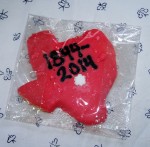
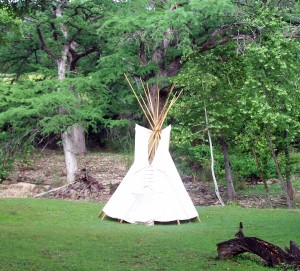
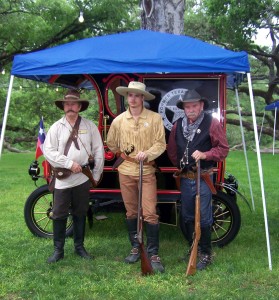
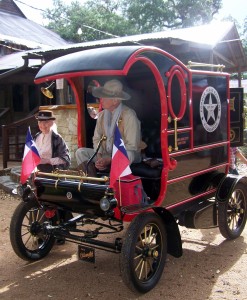
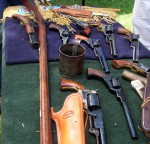
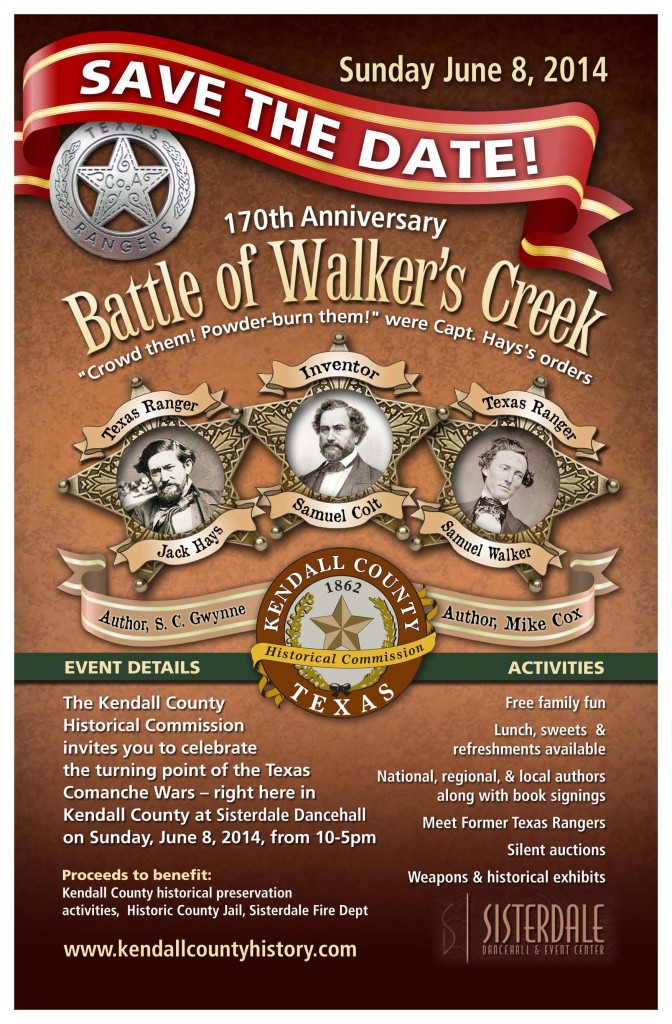

Recent Comments